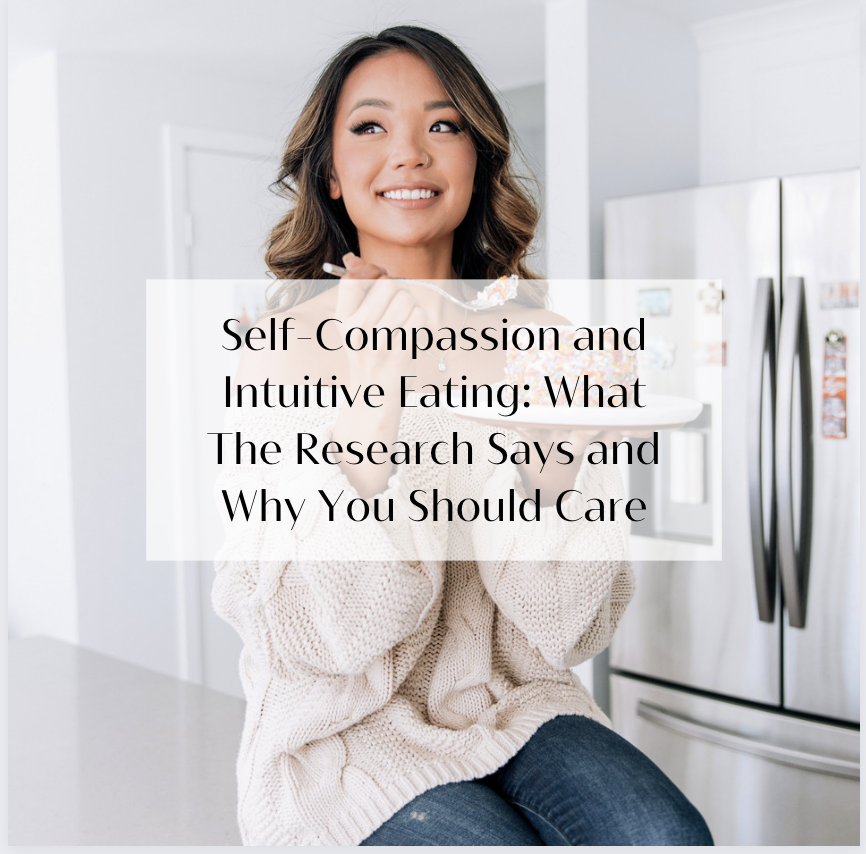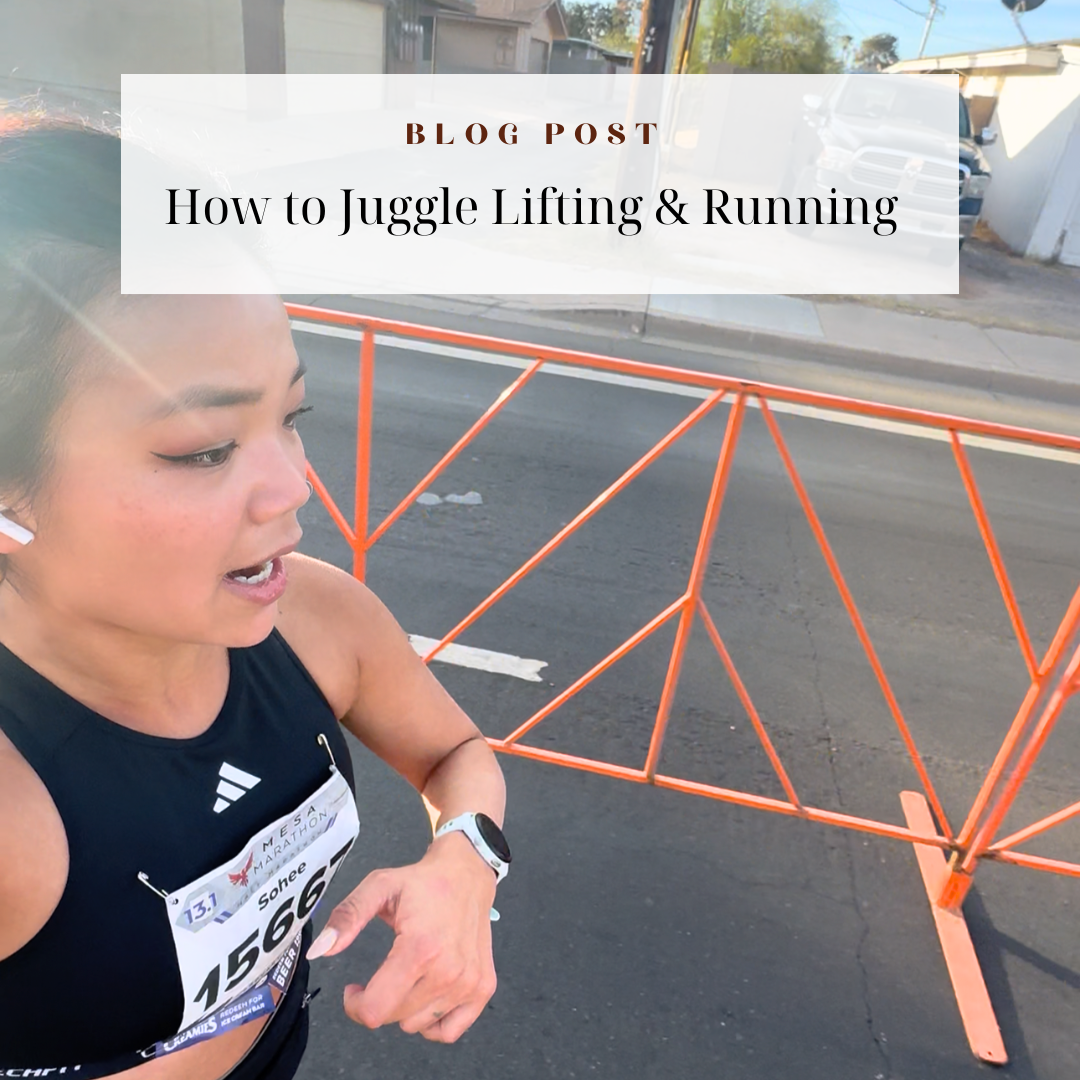Self-Compassion and Intuitive Eating: What The Research Says and Why You Should Care

Recently, I had the opportunity to be a co-author on an important study exploring the connection between self-compassion and intuitive eating.
These are two concepts that I’ve seen make a huge positive impact for hundreds of my clients, so I was pretty stoked to play a direct role in new research.
Over the course of eight months, my colleagues and I had more than 3,000 women complete a series of online surveys about their eating patterns, body image, and dieting practices.
And we found that higher levels of self-compassion scores may facilitate intuitive eating.
Before we unpack this, let’s establish a few definitions.
Self-compassion is the act of extending kindness and understanding to yourself, especially during times of personal suffering, and when feelings of inadequacy or failure arise. It also involves accepting mistakes without judgment; acknowledging that negative emotions and experiences are part of being human; and cultivating mindfulness instead of over-identifying with your circumstances.
Intuitive eating is indicative of a strong connection to biological hunger and satiety cues. People who eat intuitively don’t obsess over their food choices or eat to soothe negative emotions. Instead, they eat what they enjoy (without disregarding their health) and respect their body’s natural signals, eating when they’re hungry and stopping when they’re comfortably full.
So, why are our study’s findings — that self-compassion and intuitive eating are linked — important?
First off, it can be extremely difficult to live an emotionally balanced life when eating patterns are chaotic, and both self-compassion and intuitive eating seem to play a role in helping people foster a healthier relationship with food and their bodies.
Rather than trying to escape or avoid feelings of anger, sadness, or anxiety with food, the self-compassionate person is able to maintain awareness of what’s really going on and turn to a more adaptive coping mechanism.
What’s more, intuitive eating has been linked to a plethora of mental health benefits. Research suggests that intuitive eaters experience fewer depressive symptoms, fewer body image disturbances, and higher self-esteem. They’re also less likely to engage in disordered eating behaviors, like food restriction and binge eating.
All of this indicates that encouraging and practicing self-compassion is a fantastic way to hone our intuitive eating skills and improve overall mental health.
Easier said than done, I know.
Self-compassion used to be a foreign concept to me, too. If, during my twenties, someone had suggested loosening the reins on my diet, forgiving myself for missing a workout, or accepting anything less than a perfect GPA, I would’ve looked at them in utter bewilderment. I didn’t know how to be nice to myself and quite frankly, I had no interest in doing so because it felt akin to giving up.
I’ve wised up since then. The past year has been full of ups and downs, the kind that would’ve absolutely derailed me in the past. But rather than tearing myself down, I practiced trading self-judgment for self-kindness, and acknowledging my emotions as valid and important.
Self-compassion isn’t about cutting yourself slack, wallowing in self-pity, or refusing to take responsibility for your actions. It’s about facing your emotions head-on, honoring your needs in the present moment, and getting curious about what happened so you can course-correct for better outcomes in the future.
So… this is your sign to keep going, even when it feels like you aren’t getting anywhere. It will be one of the best investments you ever make.
Read the full study HERE.
Reference:
Messer, M., Lee, S., & Linardon, J. (2023). Longitudinal association between self‐compassion and intuitive eating: Testing emotion regulation and body image flexibility as mediating variables. Journal of Clinical Psychology, 1–10. https://doi.org/10.1002/jclp.23569





